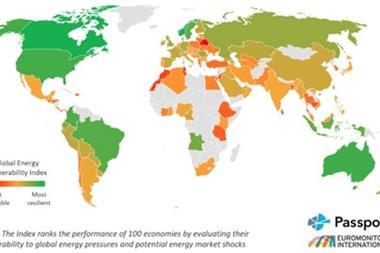The cost of media campaigns is enormous, and having to abort one is a disaster. Worse, losing a court case for malicious falsehood or trademark infringement may result in heavy damages and loss of reputation.
The playing field is not exactly level when it comes to comparative advertising. A European directive lays down what you can and cannot say, but not all countries have implemented it. A recent seminar by solicitors Lovells, showed that national rules differ considerably as to what is acceptable.
When it comes to ‘knocking’ copy, the UK is more liberal than France, Germany, or the Netherlands. This is probably the reason why it was the first EU member country to implement EC Directive 97/55, which gives a blessing to comparative advertising subject to certain provisos. The directive is slightly more restrictive than the previous regime in the UK. For example, if you consider that a competitor’s advertising makes unfair comparisons with your own product, you must now complain to the Director General of Fair Trading for an application of interim relief. Previously you could directly apply for an injunction.
In Germany, the situation is very different. For many years, comparative advertising was considered to be unfair competition, with the courts taking a strict line when it came to defining ‘unfair’. Not surprisingly, the German government initially voted against harmonisation of European law. However, when the directive loomed into view, German courts took the lead in introducing a more liberal approach. Now that the country has adopted the directive, comparative advertising is acceptable, subject to certain guidelines:
The Netherlands has also taken a hard line on comparative advertising, considering it to be undesirable on the grounds that it cannot be objective. Holland implemented the directive in April, but the courts had made it clear beforehand that there was to be no anticipation of the new rules.
Interestingly, however, the Netherlands has allowed sweeping claims to be made about products, along the lines of ‘unique’ and ‘the best’ - claims that would not pass muster in Germany and might have a hard time in the UK. This leeway appears to be based on the view that such claims constitute advertising hype, which no reasonable person takes seriously. As in Germany, Dutch courts lack a sense of humour when it comes to knocking copy. What the adman and his client consider uproarious may well be termed ‘denigrating’.
Another point to watch for when advertising in the Netherlands is the multitude of codes of practice. These cover different areas, such as loans, investments and real estate, cigarettes and alcohol, and pharmaceutical products (particularly strict). The Advertising Code Committee, a self-regulating body, receives a huge number of complaints from members of the public, some of whom seem to spend most of their spare time formulating them.
France has long been anathema for lovers of comparative advertising, although things may change when it adopts the directive - which will probably be at the end of August.
The French Consumer Code currently forbids comparative advertising on packaging, invoices, transport tickets, any means of payment or tickets to shows or to places which are open to the public. Comparison of services is illegal. Furthermore, any comparison of products must show like for like - identical products sold under the same conditions. This means that one supermarket can advertise a cheaper price than its competitors for a specific product, but a manufacturer cannot compare its own products against those of another company.
However, the real killer, according to Marie-Aimée de Dampierre, partner designate of Lovells Paris office, is that the advertiser must give its competitor prior notice of its advertisement. It must allow that competitor time to apply for the advertisement to be cancelled or to ask for justification of it. Of course, the competitor can simply adjust its own prices and prepare retaliatory advertising.
European advertisers may become bolder as the directive comes into force in all member states. Meanwhile, advertising which helps customers reach a better decision, as opposed to misleading or confusing them, is most likely to be acceptable
Sue Copeman is editor, Strategic Risk
Conditions
The European Directive on Comparative Advertising has been implemented in the UK by the Control of Misleading Advertising (Amendment) Regulations 2000, which came into force on 23 April 2000. These permit comparative advertising that meets the following conditions.
Source: Comparative Advertising, Lovells, Tel: 020 7296 2000



















